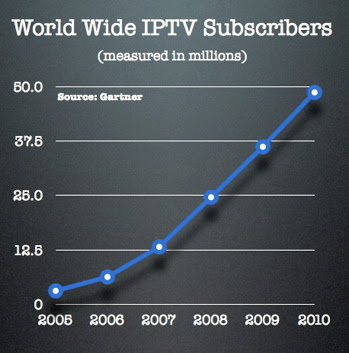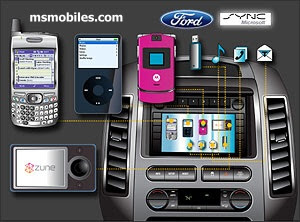Google has a clear lead over Microsoft when it comes to desktop based internet search and advertising. The big pond that Google is going after to expand its market is to aim for a bigger share of the advertising pie that includes print, radio and even television advertising.
Meanwhile, Microsoft is trying to catch up with Google in search and advertising. But that is not where they can out maneuver and beat Google. This may be the reason Microsoft is targeting ubiquitous computing – the new internets that are yet to be dominated.
My Car’s Internet
Americans spend a significant amount of their lives in cars commuting and picking up kids from school. Microsoft, working with Ford, is far ahead in the connected-car game. Think of it as the Microsoft Operating System for Cars.
The addition of Yahoo! to the basket of technologies and services Microsoft can offer, especially Yahoo! Go, can help Microsoft further gain leadership here. Yahoo! Maps activated by voice integrated with your car’s GPS. The possibilities are endless.
My TV’s Internet
After the car, we spend a significant portion of our lives vegetating in front of televisions. And even though the amount of time we spend on TV vs computers is declining – it is still significant.
Microsoft IPTV initiative, now re-branded as Microsoft Mediaroom, is a leader in this space. And Microsoft has done a tremendous job of building alliances around this. Taking a page from its Windows play book where the Dell, HP and IBM’s of the world helped it become the leader, Microsoft is tieing up with partners be it global telcos like BT or regional leaders like Reliance in India.
 Source: Microsoft Watch
Source: Microsoft WatchMy Game Box’s Internet
So, we all know that after the initial hiccups and skepticism, XBox strategy is finally ready to pay dividends (Microsoft is expected to finally make a profit on XBox this year) – but even without the profits, it is hard to deny that XBox has captured a significant market share. Yahoo! has done well with its casual games and is a leader in the space. It would be interesting to see what synergies can be brought to bear through this alliance.
Searching for Success
So, yes search and advertising is a huge market. And Google could become the first trillion dollar market cap company according to some. By the way, where is Henry Blodget now that the Google stock growth has, how shall we say it, slowed down. I guess Henry Blodget timed it perfectly again – pretty much making the most bullish claim at the height of Google valuation – that should have been a signal to the rest of us (see my and Barron’s post on the Blodget call).
Coming back to search and advertising – even if Google continues to win and maintain marketshare in search and advertising, Microsoft can win big by focusing on the new internets.
Theoretical Framework: Blue Ocean?
Although there may not be any method to this madness (the $45 billion bid), I am drawn to the blue and red ocean analogy put forward in the book, Blue Ocean Strategy. Here is a summary from Wikipedia.
Blue Ocean Strategy
The metaphor of red and blue oceans describes the market universe. Red oceans are all the industries in existence today—the known market space. In the red oceans, industry boundaries are defined and accepted, and the competitive rules of the game are known. Here companies try to outperform their rivals to grab a greater share of product or service demand. As the market space gets crowded, prospects for profits and growth are reduced. Products become commodities or niche, and cutthroat competition turns the red ocean bloody. Hence, the term red oceans.[3]
Blue oceans, in contrast, denote all the industries not in existence today—the unknown market space, untainted by competition. In blue oceans, demand is created rather than fought over. There is ample opportunity for growth that is both profitable and rapid. In blue oceans, competition is irrelevant because the rules of the game are waiting to be set. Blue ocean is an analogy to describe the wider, deeper potential of market space that is not yet explored. [4]
The corner-stone of Blue Ocean Strategy is ‘Value Innovation’. A blue ocean is created when a company achieves value innovation that creates value simultaneously for both the buyer and the company. The innovation (in product, service, or delivery) must raise and create value for the market, while simultaneously reducing or eliminating features or services that are less valued by the current or future market. The authors critique Michael Porter‘s idea that successful business are either low-cost providers or niche-players. Instead, they propose finding value that crosses conventional market segmentation and offering value and lower cost.
Clearly, search and advertising is a red ocean with existing leaders and several startups getting funded by venture capitalists. Microsoft would do much better to use both its existing assets and Yahoo! properties – to go after the new internets.
Like this article? We can deliver to your email. Or RSS. We never spam. No ads either.


